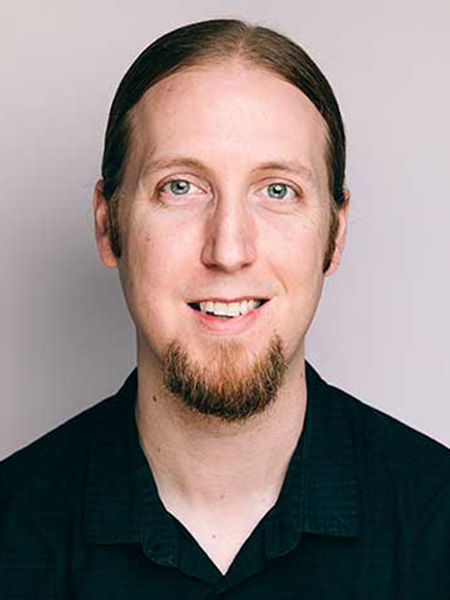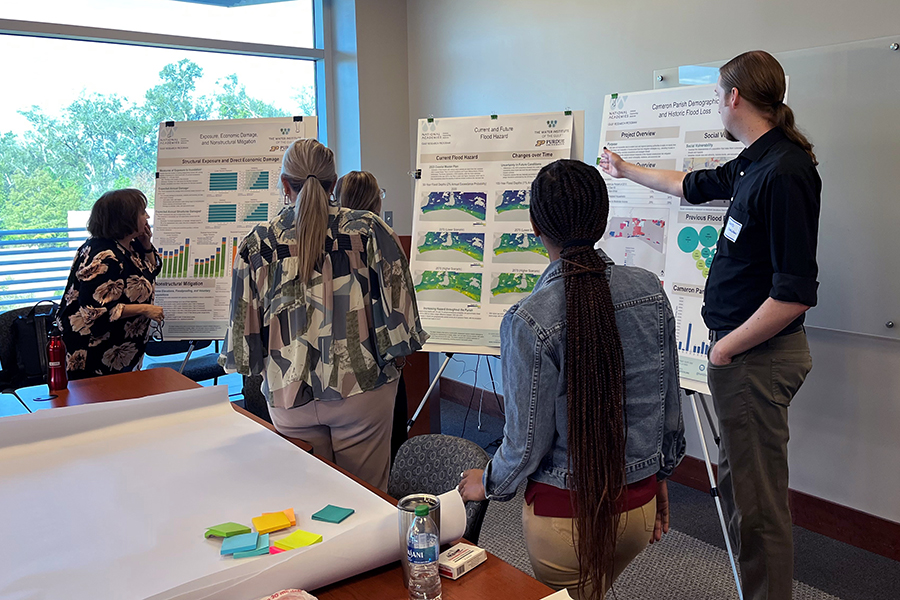IE’s Johnson receives NSF grant to explore retrofitting buildings for disaster prevention
David Johnson, assistant professor in the School of Industrial Engineering, has earned a research award from the National Science Foundation’s Strengthening American Infrastructure Program.
This National Science Foundation (NSF) program is investing more than $8 million in projects that address flood mitigation measures, rural transportation systems and pharmaceutical supply chains. The funding supports research that utilizes advances in behavioral and social science to improve the value and usefulness of infrastructure — from U.S. roads and highways to state and local power grids.

Johnson is PI on a three-year project focused on conducting experiments to accurately identify the value communities place on the functionality of varied types of infrastructure, like hospitals and residential complexes, after an earthquake. The team’s goals are to better quantify the impacts of structural retrofits on communities and to design policies that better incentivize the implementation of retrofits before hazardous events occur.
“We’re excited to have been selected as part of this NSF program that recognizes the value of interdisciplinary, human-centered research focused on improving lives with infrastructure," Johnson said. "As someone who moved to West Lafayette from the Los Angeles area, I’m looking forward to increasing the safety of concrete buildings constructed in L.A. before modern seismic building codes."
Co-PIs are Shirley Dyke, professor of mechanical engineering and civil engineering, Julio Ramirez, the Karl H. Kettelhut Professor in Civil Engineering and NHERI-NCO Center director, and Holly Wang, professor of agricultural economics.
“Building codes regulating seismic risk focus almost exclusively on structural vulnerabilities and preventing loss of life during an earthquake, but they ignore the value communities place on the functionality of buildings and our ability to reoccupy them as soon as possible after an extreme event,” Johnson said.
His award was one of nine new people-focused NSF research grants that span the fields of computer science, engineering, geosciences, mathematics and physical sciences.
“Strong infrastructure stimulates U.S. job creation, improves our quality of life and protects the well-being of our communities for many years into the future,” said NSF Assistant Director for Social, Behavioral and Economic Sciences Kellina Craig-Henderson. “The projects we’re supporting are taking science out of the proverbial lab and into a broad new array of areas so communities large and small can directly benefit from their discoveries.”
The projects’ diverse goals include improving air quality in rural areas with high levels of highway traffic, enabling communities and neighborhoods to retain power during large-scale power outages and helping states and cities effectively plan for increasingly frequent floods and storm surge. In addition to conducting fundamental research, the projects will support participation and outreach activities with the residents of several local communities, the creation of new tools and resources that will be freely available to others and multiple educational and training opportunities for STEM students.
In 2021, Johnson was named to a team awarded a five-year, $15-million NSF grant to establish the Institute for Geospatial Understanding through an Integrative Discovery Environment (I-GUIDE). The institute helps researchers better estimate and predict risk and anticipate impacts from natural disasters or climate change.

